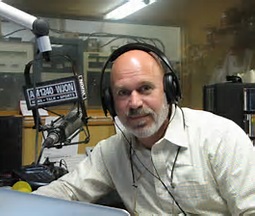For better or worse, political talk radio and TV are how most Americans are getting their news about the 2016 presidential candidates and the state of the nation.

Most people who know the difference between professional journalism, or even appreciate traditional journalism, lament the rise of political commentators who push an agenda in search of ratings, profits and personal gain, even while some simultaneously try to push a position of objectivity.
One of the better, more thoughtful is the political commentator and lawyer Michael Smerconish, who contributes to CNN and also has a satellite radio show. In a Feb. 24 radio show, Smerconish had an interesting interchange with a caller who said he was from Nevada and was Hispanic. The caller said that while he was raised in a politically conservative Cuban family, he was now leaning in favor of Bernie Sanders since that candidate best described the nation’s problems, especially the mortgage fiasco of 2007, which led to the recession and the issue of the too-big-to-fail banks.
Smerconish, who says he is independent, then replied that the caller was making the case for Donald Trump because it was the government’s job to rein in the errant banks and mortgage lenders and that the government failed in its regulatory obligations. Always confident and with the gift of gab (Smerconish is also a lawyer) he then inferred that Trump could have controlled the situation since the billionaire candidate is broadly on record as saying that the federal government has failed in many supervisory roles, presumable also in financial regulation.
Now, many decades ago, in an ideal, pre-Tea Party world, the Federal government had some regulatory teeth. But this is 2016.
What Smerconish missed is that today, a core Republican belief opposes federal regulation in almost all forms (except when it comes to abortion) and this especially includes the financial markets (the SEC and CFTC), the environment (abolish the EPA), and even tax collection (abolish the IRS).
Smerconish also failed to recognize the process of “regulatory capture,” an academic term that describes how lobbyists and commission appointees and staff use financial regulatory commission, especially the SEC and CFTC, to serve a few years in an agency position and then leave to personally promote their own careers in private practice. The SEC is a model for regulatory capture and it explains why it is so ineffective. But it is also prevalent at other Federal agencies that have contacts with industries that are especially influenced by well-paid lobbyists. However, as most voters know, this includes almost every aspect of government and why we have the best government that money can buy.
As a lawyer, Smerconish should look no further than former U.S. Attorney General Eric Holder whose corporate law firm kept his corner office vacant and in tact

for his return while he served in the Obama Cabinet. Maybe that is one reason Holder never pursued any criminal actions against the banks and his former or future clients. It would certainly be bad for business.
Yet despite all these facts, Smerconish totally omitted the only presidential candidate that advocates serious, authentic Wall Street reform, Bernie Sanders. Trump has never come out as forcefully as Sanders on Wall Street reform (except to criticize some hedge fund managers, as Sanders has even done more forcefully), so this leaves listeners wondering why Smerconish, who is more thoughtful than most other radio commentators, could twist the facts or be so uninformed about the origins of the 2007 mortgage fraud that caused the recession.
But as any listener knows, political TV and radio commentators are in their own world, devoid of being corrected, never criticized by fellow commentators and insulated from the public. Despite all of their high-tech web sites, it is impossible to get a factual correction to them except by the U.S. Postal Service (which Republicans would also like to privatize.)
So since I have a web site, I can write this correction for Smerconish. Like all the others in political media, they are above receiving any forms of pubic corrections. But is is important for this radio host to get a better handle on this admitted single, but important cause of the greatest financial fiasco since the Great Recession. It was the too-big-to-fail banks and the top-down, bottom-up mortgage fraud and the industry lobbyists who held federal and state regulators at bay, while the fraud worked its way through the global system.











